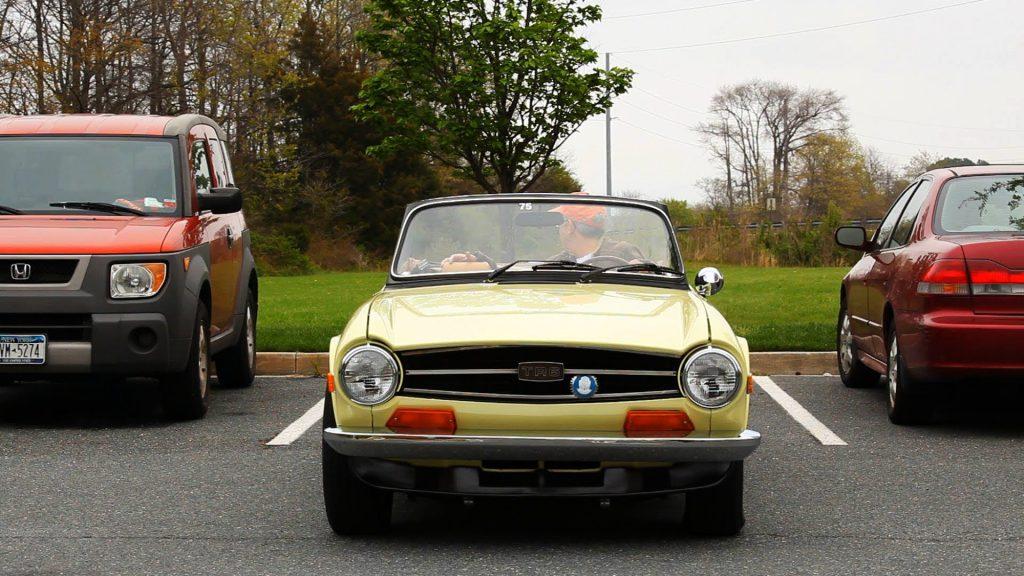Many drivers hurriedly park their cars in parking places by using front-in parking rather than using the back-in parking method. Though the front-in parking is accepted, it is easy and quick to back into a parking spot. Many people find that using back-in parking gives them more vision when pulling out of the parking space. As you will head your car towards the parking spot, you will have a bigger vision of your exit if you use back-in parking instead of front-in parking. So if you don’t know how to back into a parking space, here is the right place for you. In today’s blog, we will show you how to park backwards in the right way with a step-by-step guide. Are you ready? Let’s go now!
Contents
How To Back Into A Parking Space Correctly? 3 Easy Steps To Do
Many people park their vehicles so hastily to get a spot without bothering about how they would back the car. Following the right technique for car backing is as essential as accurately parking the car. So explore the following method to back your car safely:
There are some rules you should follow before making these methods:
- The first rule to back your car correctly is that you must always maintain an appropriate posture. At the same time, we need to adjust the rearview mirror to a position that provides the best visibility.
- In case you need to reverse the car into difficult positions, you need to use a combination of all 3 mirrors with over-the-shoulder viewing to achieve the necessary visibility.
- For blind spots that are difficult to see, we can adjust the rearview mirror downward to see those locations more clearly. In case the driver feels that he still cannot observe well, he needs to get out of the car to observe.
1. Locate an empty spot
If you find an empty spot that does not have any cars on either side, parking here would be beneficial. There are negative chances of having an accident at such places. Moreover, it increases the visibility too. Besides, the new drivers can enhance their skills by backing into a parking space with less vehicle crowd. Just a few tries and you are good to go.

See more:
- Putting the car in Reverse while driving? Know this first
- How long can you move a car into reverse gear?
2. Move the bumper & alert others
The next step in our “how to back into a parking space” guide is moving the bumper and alerting others. After successfully grabbing the spot, it’s time for the real showcase that is backing your car. For that purpose, ensure that the rear bumper is slightly in front of the space by driving in front of the spot. Besides, it will make enough space for you to reverse the car. Before you move any further, warn the drivers near you so that you don’t bump into somebody’s car accident. You can turn on the emergency flash or blinkers so that drivers near you get the hint that you are about to turn back the vehicle. So be careful while moving the vehicle and don’t forget to alert the neighbor drivers too.
3. Check the oncoming vehicle & reverse
Before you put the entire vehicle into reverse, keep an eye on the back for oncoming vehicles. It’s preferable to check the rear and side mirrors so that you can see the approaching cars from behind. Moreover, this practice will keep pedestrians safe. This precaution is essential especially when you are turning back the car in a public place, as what is coming from behind is unpredictable. All you have to do is just be alert and careful.

When everything is clear, reverse the vehicle. Start turning the steering wheel to a respective direction (preferably in the right) carefully. Continue moving back until you come into the accurate position to straighten the car. Once the car is aligned, don’t forget to straighten the wheels too.
Check out the video below to learn How to back into a parking space like a pro:
You’ve learned about how to back into a parking space correctly. In the next part, we will explain why we should use the back-in parking method in detail and compare this method with front-in parking. Don’t forget to check it out!
Why Is It Safer To Back Into A Parking Space?
Most drivers often choose to slide into a parking space front first, and then back out when they have to leave. But according to auto experts, backing your car into a parking space – as known as “Tactical parking” – is a much more effective, safer method. Although this method requires a bit of time to reverse into a parking place or your driveway, its advantages far outweigh the time it requires.
So what is wrong with front-in parking? The logic is very clear and easy to understand. If you drive your car to the parking spot by front-in parking method, you later have to back out into unknown traffic that may be full of bikes, other cars, and pedestrians. Your field of vision is quite limited and can cause you to hit other cars or pedestrians on your driveway. In addition to it, in an emergency case, it is quite hard for you to pull out rapidly.
A study by the Insurance Institute for Highway Safety showed that 14 percent of car crashes happen in parking spots. Many of these are caused by “back-over crashes”, in which drivers crash another car while they are backing out of a parking spot.
On the other hand, these crashes could not happen if the drivers used the back-in parking method. The reason is having a large field of view is more vital when you pull out of a parking spot than it is when you pull in. When backing into a parking space, you are pulling into a fixed place where there is nearly no one here. When pulling out, you are driving your car into a space with a lot of traffic like bikes, motorbikes, and cars as well as pedestrians.
So why does not every driver use the back-in parking way? Most drivers often think that back-in parking is more complicated than front-in parking. For people who were initially taught back-in parking, it is second nature. For the rest of us, it seems odd. But nowadays the job of backing into a parking space is pretty easy with the help of technological devices like rear cameras and some sensors making beep noises when you are too close to a pedestrian, a bike, another car, or a soccer ball in the driveway. Hence, a newbie driver with some practice can totally do it without any trouble.
Wrap-Up
Hopefully, this information will help you learn how to back into a parking space safely. Follow these driving tips whenever you are out and looking for a spot to park your vehicle. And in case you have any further questions on how to reverse park or how to back into a parking spot, feel free to leave it in our comment section.
Have a safe drive! See you in the next blog!




So good an advice.
Hae advice on how to change gears from high gear to low gear fast without the car making that funny noise of strain.
Secondly how do i change gears without making my passengers uncomfortable due to the force exerted